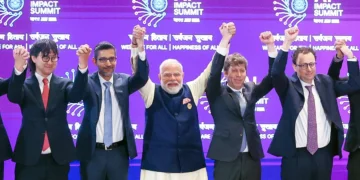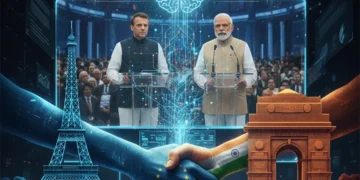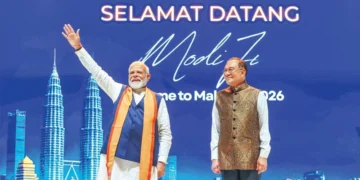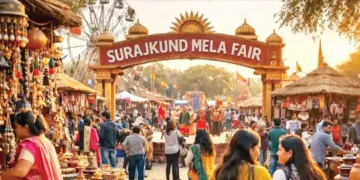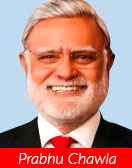 It began not with a whisper, but with a political detonation across the Gangetic plains. Last week, Bihar, always a keen weathervane for shifting political winds, delivered a verdict so mortifying for the Congress that even its most seasoned apologists struggled to dress it up.
It began not with a whisper, but with a political detonation across the Gangetic plains. Last week, Bihar, always a keen weathervane for shifting political winds, delivered a verdict so mortifying for the Congress that even its most seasoned apologists struggled to dress it up.
Contesting 61 seats, the party staggered out with a miserable six. It wasn’t a defeat – it was a spectacle of collapse. And at its centre, as always, stood Rahul Gandhi, the prudish prince of a shrinking empire, presiding over the most dramatic political implosion in the history of a once-dominant national party.
For nearly two decades, Rahul has been more apparition than architect in national politics. Occasionally, he appears with rhetorical flurries and theatrical social media declarations, only to recede just as quickly to a contemplative distance. This oscillation between activism and withdrawal has defined his political journey as a leader-in-the-making. But what it has done to the Congress is far more consequential. It has led to a collapse of its mass appeal, and a spiralling defeat cycle from which it has shown no capacity to escape.
Rahul’s record looks painfully stark. He has become, by any objective measure, the most unsuccessful political inheritor in the history of the Nehru-Gandhi family.
The record is brutal. Rahul joined politics in 2004. But he started influencing the decision-making system from 2009. Since then, according to published data, the Congress has lost 71 of the 83 assembly elections held in the country. That is not a slump. It is institutional liquidation. In parliamentary politics, the story is no less catastrophic. In 2014, the Congress was reduced to 44 Lok Sabha seats, a historic low that shocked even its detractors.
Continued on Page 3
A decade later, the party clawed its way to 99 seats. The collapse of its state power tells an even more haunting story. In 2014, the Congress governed 11 states; today, it controls only three – Karnataka, Telangana, and Himachal Pradesh, a tiny archipelago of influence in a vast political ocean dominated by the BJP and regional forces. A national party that once dreamed in maps has been reduced to hoping in fragments.
Its legislative strength reveals the same downward slide. The total number of Congress MLAs across India has fallen by nearly half in a decade, a sign of withering organisational vitality. What remains is an ageing party with exhausted leaders, weakened structures, and an increasingly demoralised base. This would be tragic in any context. But for the Nehru-Gandhi dynasty, it is staggering. Because Rahul has not merely struggled when compared to his contemporaries, he has fallen woefully short when measured against his own lineage.
Consider his great-grandfather, Jawaharlal Nehru. The architect of modern India, Nehru led the Congress to three consecutive Lok Sabha victories, each with overwhelming mandates. The Congress of Nehru governed more than three-fourths of the states, setting the ideological and administrative foundations of the young republic.
Glorious lineage
Then came Rahul’s grandmother Indira Gandhi, whose political instincts were razor-sharp and whose electoral dominance unmatched. She, too, won three national elections, two of them with thunderous majorities. Under her stewardship, the Congress once again ruled over more than two-thirds of the states.
Even Rahul’s mother Sonia Gandhi achieved what had seemed impossible. After eight years out of power, she orchestrated a dramatic Congress return in 2004. It wasn’t through dynastic entitlement, but through strategic political engineering. She built alliances, stitched together ideological contradictions with finesse, and placed the understated, but formidable, Manmohan Singh as the prime ministerial face of a stable coalition. In 2009, she delivered a second consecutive term.
Against this lineage of political mastery, Rahul’s record looks painfully stark. He has become, by any objective measure, the most unsuccessful political inheritor in the history of the Nehru-Gandhi family. While his forebears expanded the Congress, he has presided over its contraction. Where they transformed it into a national force, he has shrunk it beyond recognition. Where they governed from a position of strength, he leads a party struggling to breathe.
No alternative agenda
The reasons are neither hidden nor mysterious. For one, Rahul has not articulated any alternative governance agenda. In a political era defined by sharp ideological battles and clear administrative promises, his message remains diffused, episodic, and philosophically abstract. He has produced no unifying narrative, no memorable slogan, no coherent articulation of what the Congress stands for today – socially, economically, or institutionally.
Moreover, the Congress organisation has continued to rot under his watch. He has not rebuilt the grassroots. The inability to create charismatic, competitive state leaders has been fatal. In the South, the Congress has some pockets of strength, but in the politically decisive Hindi heartland – Uttar Pradesh, Bihar, Madhya Pradesh, Jharkhand, and Punjab – Rahul has failed to cultivate a single formidable challenger to the BJP’s local leadership. The party’s absence from these heartland states is not merely a strategic deficit; it is a political obituary in slow motion.
Even in forging a nationwide opposition alliance, Rahul has been surprisingly passive. As the leader of the country’s second-largest political formation, he should have been the strategist-in-chief of the anti-BJP front. Instead, his engagement has been inconsistent and reactive. Rahul’s half-committed presence has left the INDIA bloc fragmented and rudderless at key moments.
Critical question
Thus arises the question that hangs heavily over Indian politics: Is Rahul an accidental politician? Or perhaps he is a reluctant one? Or worse, a guest artist on India’s political stage who enters and exits at will, leaving the responsibility of real hard politics to others? Leadership in a national party demands day-in, day-out engagement, not sporadic bursts of enthusiasm.
India’s democracy cannot function with a feeble opposition. That responsibility, historically and practically, lies with Congress. Yet today, the party is not led by a clear ideological compass, but by a parivar, a family brand that once commanded loyalty across castes, regions, and classes, but now seems unable to inspire even its own cadre. Many within the Congress whisper that the Gandhi brand has lost its electoral potency. It may still keep the party from splitting into warring factions, but it cannot propel it to a national revival.
The Congress must now confront a truth it has tiptoed around for far too long. Its crisis is no longer just structural, electoral, or organisational. The party cannot be rebuilt on nostalgia, cannot be resurrected through surname entitlement, and cannot be revived by a leader who treats politics as a part-time vocation. India does not owe the Congress another chance. The Congress must earn it. And it cannot do so as long as it remains shackled to a leadership that has repeatedly demonstrated an inability to win, inspire, or govern.
Evolve or vanish
If the Congress still imagines a role for itself in India’s democratic future, it must execute a clean, unambiguous break with its own superciliousness. It must find a leader who is hungry, not hesitant; present, not periodic; ideological, not impressionistic. It needs someone who is willing to wage political war every single day, not embark on philosophical excursions while the party crumbles.
The choice is brutally simple: evolve or vanish. Either the Congress reengineers itself, or continues its slide into footnote status while India’s centre of political gravity shifts permanently elsewhere. The countdown has already begun.
















